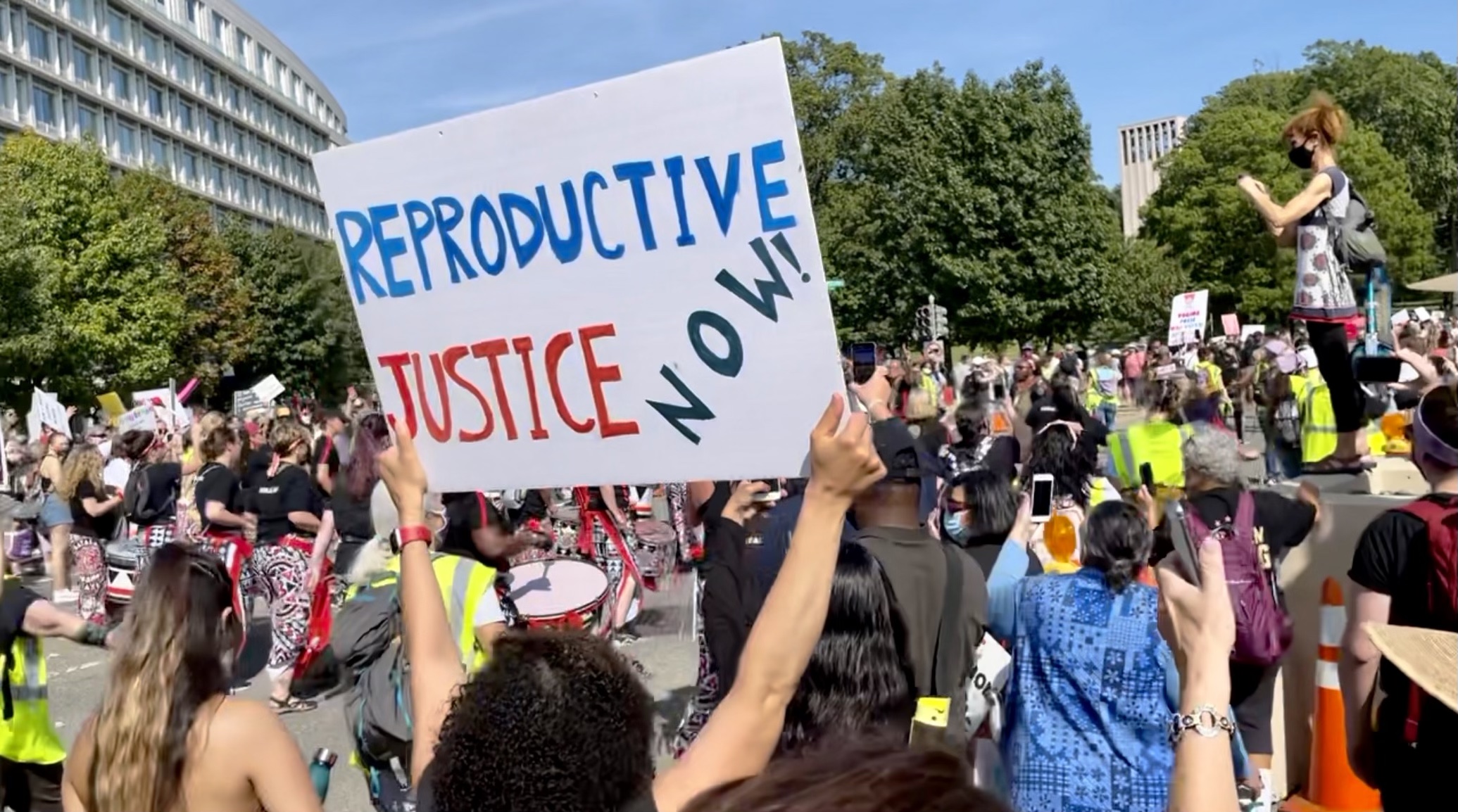January 22nd, 2023 would have been the 50th anniversary of Roe v Wade.
For nearly half a century, the Supreme Court’s landmark decision guaranteed the protection of a woman’s constitutional right to an abortion “without excessive government restriction.” This anniversary is an ever-cruel reminder that this fight is not and never has been over, and it is more important than ever to redirect public health efforts to support comprehensive reproductive health services throughout the country.

In Dobbs v. Jackson Women’s Health Organization, the Supreme Court overturned Roe v. Wade. States took immediate action to create laws and regulations against a woman’s own bodily autonomy, and have threatened further restrictions around additional reproductive health care services, including access to contraception and sexual health education (SHE). Taking away this fundamental right has, and will continue to have, a devastating global impact and will turn back the clock on the economic and collective progress women have fought to have today.
Already, 24 US states have banned abortion or are likely to do so. The implications of these laws fall heavily on the nation’s most marginalized women, especially women of color. Although data is limited, more than half of abortions are among women of color. These women will be disproportionately affected by state actions restricting comprehensive reproductive health care as they are more likely to face structural barriers when accessing care.
What exactly is Comprehensive Reproductive Health?
Comprehensive reproductive health services are essential to a woman’s health and well-being by ensuring access to services such as contraceptive care, sexually transmitted infection (STI) prevention and treatment, obstetrical care, and abortion services. With these services now subjected to state regulations, women risk losing access to critical, life-saving health care.
Let’s take cervical cancer as an example:
The American Cancer Society estimates that in 2023 there will be about 14,000 new cases of invasive cervical cancer diagnosed in the United States with over 4,000 deaths. Almost all cases of cervical cancer (95%) can be attributed to the HPV (Human papillomavirus), the most common STI in the United States. At some point in their lives, most sexually active women and men will be infected.
Once considered the most common cause of cancer death for American women, we’ve seen rates of cervical cancer decrease due to strong public health measures like Pap tests, the HPV vaccine, comprehensive sexual health education, and programs such as the CDC’s National Breast and Cervical Cancer Early Detection Program (NBCCEDP) which provides breast and cervical cancer screenings and diagnostic services to women who have low incomes and are uninsured or underinsured. Even before Dobbs, there was a great disparity by race and ethnicity with these services and programs; in a post-Dobbs world, we may begin to see rates of cervical cancer spike due to restrictions and regulations around these essential services.
Here at Health Outreach Partners, we have vowed to be a partner in the fight for reproductive justice. We watch in sadness as laws have prohibited access to fundamental health care in Roe’s wake, and have moved swiftly to identify our role in protecting and expanding services to comprehensive reproductive health care. By using our expertise in training and technical assistance, we aim to support health centers in reproductive health services like cervical cancer screening and prevention. This includes innovative public health measures that are community-tailored, culturally and linguistically appropriate that reach beyond the individual level to account for the unique lived experiences of special populations.
HOP is conscious of the structural factors that affect women’s barriers to obtaining care, especially BIPOC (Black, Indigenous, People of Color) women. We reaffirm our commitment to continue to advocate for policies and practices to secure comprehensive reproductive health care for all women.
To learn more about HOP’s views and statement regarding the Dobbs v. Jackson’s decision, click here.
By Meghan Erkel, Senior Project Manager, for HOP’s series of monthly staff blogs.
